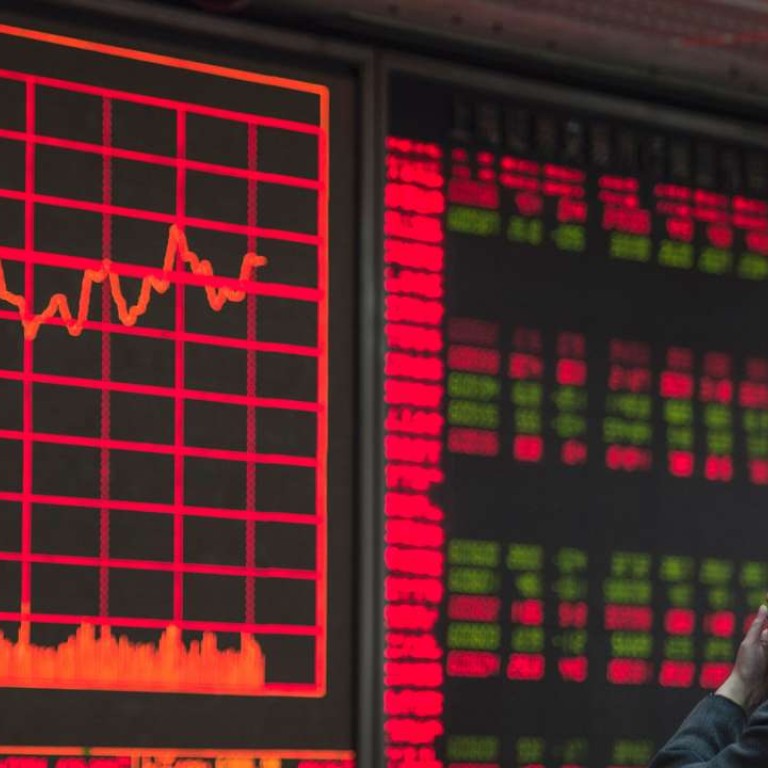
China stocks end sharply lower on concerns Beijing will cool stimulus efforts
Shanghai Composite ends 2.3 per cent lower, while Hang Seng drops 0.9 per cent
Mainland Chinese stocks sank the most in almost two months on Wednesday, amid concerns that the government may roll back fiscal stimulus after recent economic data pointed to a deepening economic recovery.
Every sector from financials to telecoms finished lower, with more than 1,000 stocks in Shanghai retreating into negative territory.
The sudden sell-off is an unusual occurrence in China’s market dominated by individual investors, according to analysts, who said the bruising drop in stock prices was triggered by a sudden shift in sentiment.
The Shanghai Composite Index dropped as much as 4.5 per cent, its biggest loss since February 29, before narrowing the decline to 2.3 per cent to close at 2,972.58. The CSI 300, which tracks large companies listed in Shanghai and Shenzhen, dropped 1.77 per cent to 3,181.03
The Shenzhen Composite Index nosedived 4.43 per cent or 86.69 to 1,871.51 while the Nasdaq-style ChiNext dropped 5.6 per cent or 127.28 points to 2,145.24.
Hong Hao, chief China strategist at investment bank Bocom International said there was almost no chance the central bank would lower interest rates in short term, adding that the policy bias at the PBOC has shifted towards neutral.
Ma Jun, research bureau chief economist at the People’s Bank of China said Tuesday that monetary policy should avoid encouraging companies to take on more debt and that the central bank will consider the impact of money supply on prices.
“Aside from continuing to support steady economic growth, future monetary policy will focus on guarding against macroeconomic risks, especially avoiding rapid growth in companies’ leverage, and will also consider the impact of increased loans on the cost of living and real estate prices,” Ma told the official newspaper of the People’s Bank of China.

Bocom’s Hong believes tighter liquidity also dragged down the market. The central bank auctioned 250 billion yuan (HK$298.73 billion) of seven-day reverse-repurchase agreements on Wednesday, the most since February 26.
“It shows that China is stepping up efforts to avoid a seasonal cash squeeze, ” he said, noting that China still faces greater liquidity pressure in April.
Other analysts flagged concerns about the long term ability of state invention to prop up the economy. Patrick Shum investment director at Tengard Fund Management said the recovery in growth had been driven by policy-supported state-owned enterprises, rather then private companies.
“I am cautious on the sustainable recovery of the Chinese economy,” he added.
China stocks rose to their highest level in three months last weak after China released better-than-expected GDP growth for the first quarter.
In Hong Kong, the Hang Seng Index fell 0.93 per cent or 199.9 points to 21,236.31, while the Hang Seng China Enterprises Index dropped 1.19 per cent or 110.03 points to 9,134.42.
Tencent, China’s second largest internet company, fell 2.29 per cent to HK$161.90. Ping An insurance was down 1.32 per cent to HK$ 37.40.
Victor Au, chief operating officer at Delta Asia Financial said Hong Kong stocks took their cues from the gloomy sentiment in Chinese markets.
Bocom’s Hong cautioned that external factors such as the direction of US interest rates was also weighing on the minds of investors.


